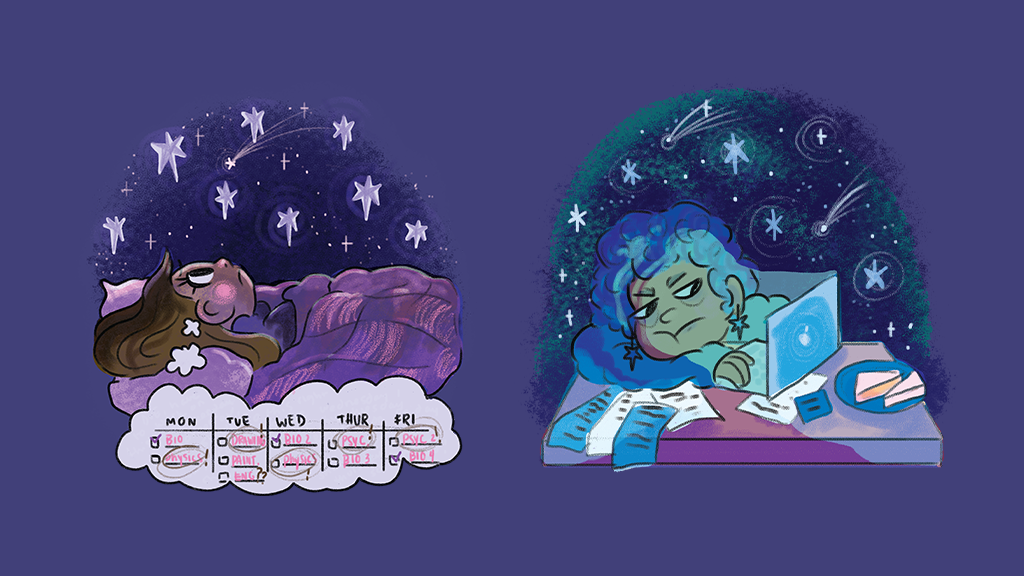Stress Symptoms
As a result of stress, students can experience physical symptoms like sweating, increased heart rate or blood pressure, shortness of breath, headaches, stomachaches or fatigue.
Emotional reactions may rise to the surface in the forms of hostility, increased worrying or feelings of helplessness and loneliness. Students may also experience binge or reduced eating, substance misuse or irregular sleep habits.
Memory loss, loss of concentration, or feeling disconnected from your thoughts, feelings and identity can be effects of stress as well.
Strike a Balance
Managing time and stress as an RIT student means learning how to create a balance between school and life.
When preparing for course assignments and exams, start early. Take notes during class and ask questions about the course material and expectations that professors have for assignments.
Create a study schedule in order to plan time to prepare for exams. Attend review sessions held by professors or teaching assistants to gain valuable information about tests and homework.
Form a study group to help break down complex concepts, divide up review materials between classmates and provide accountability. Also, visit professors’ office hours to ask them questions and review material on a one-on-one basis.
Taking these initiatives prevents you from becoming overwhelmed by combined course loads and allows you to dedicate
The COVID-19 pandemic has increased feelings of anxiety, loneliness and depression among students. If enrolled in online classes, try to set up dedicated study spaces to increase self-motivation. Also, try to connect with other students via social media and grow those relationships into real life friendships.
During a period of transition like college, homesickness can act like a recurring wave. Living away from home unlocks a new level of independence that requires some time to adjust to.
Know that those feelings are normal, and rely on other students and resident advisors for support. Actively try to stay in touch with friends and family during the school year, while connecting with other students on campus.
Wellness Activities
Prioritize rest and mental health by reducing interruptions to sleep. Identify stress outlets and take breaks in the forms of exercise, drawing, listening to music and more.
Weekly Wellness activities on campus offer ways to relax, especially during stressful times of the school year. The Fireside Lounge holds Bow Wow Wellness to help students de-stress with therapy dogs. Wellness Peer Educators host activities like gardening and tie-dyeing workshops for socialization.
On campus mental health services include calling Counseling and Psychological Services at (585) 475-2261 or reaching out to mental health therapists directly.








